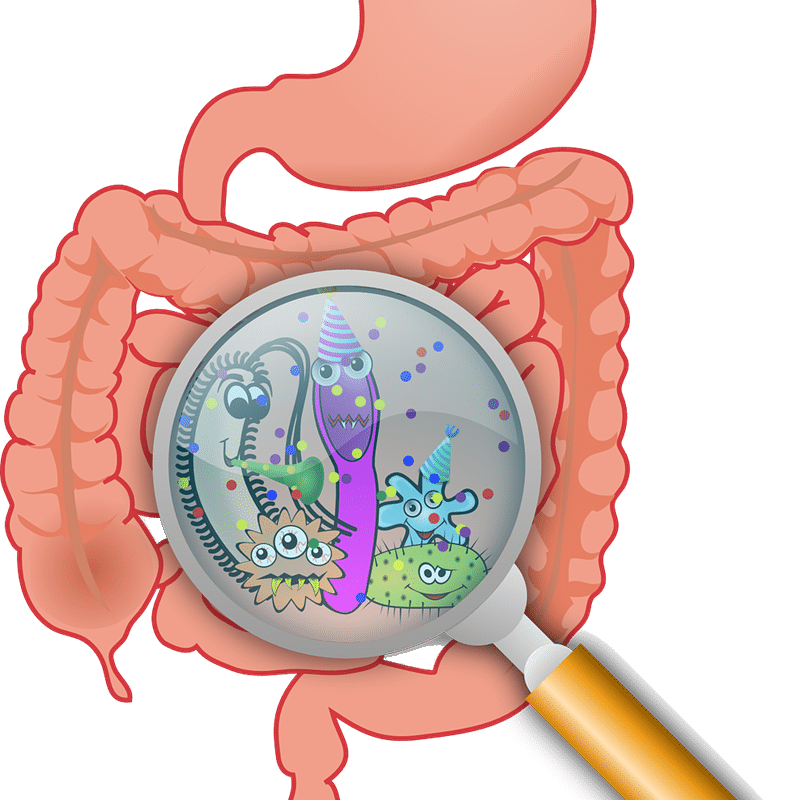Ever heard of the saying, “What you eat becomes you?” There’s growing evidence that your gut talks to many parts of your body.
And how it does it is through this unique microbial environment known as microbiome that stimulates:
- A network of nerves
- Hormones
- Immune responses
About 100 trillion bacteria live in our body, and 80% are in the gut. When babies are born, their gut is sterile or “super clean.”
This is not necessarily good. Babies without the good bacteria tend to get sick because of a weak immune system. The initial colony of bacteria comes from the mother, as the baby passes through the birth canal and ingests breast milk.
When the baby gets older, the gut microbiota changes, depending on the presence of:
- Stress
- Type of food
- Exposure to antibiotics and toxic substances
Latest studies have shown the type of bacteria living in the gut impacts many parts of the body through the following:
- Gut-Brain Axis
- Gut-Liver Axis
- Gut-Kidney Axis
- Gut-Bone Axis
- Gut-Lung Axis
- Oral-Gut Microbiome Axis
We look at the first three main axes and see how the gut affects major organs in the body.
The Gut-Brain Axis
There’s growing evidence from many studies showing the microbes in the gut may affect the behavior of a person and put him at risk for:
- Anxiety
- Depression
- Autism
- Schizophrenia
- Alzheimer’s disease
- Other brain disorders
These microbes are called psychobiotics. When you increase the level of these live organisms to adequate amounts, it can work as:
- An anti-depressant
- Improve memory
- Thinking
The Gut-Liver Axis
Lately, the gut has been called a “virtual metabolic organ,” meaning its action extends beyond itself to affect many other organs. One major organ is the liver.
When the microbiome becomes out of balance, and more bad bugs live in the gut, leading to an unhealthy “leaky gut,” these organisms migrate to the liver and may contribute to the development of chronic liver diseases such as:
- Chronic hepatitis B (CHB)
- Chronic hepatitis C (CHC)
- Alcoholic liver disease (ALD)
- Non-alcoholic fatty liver disease (NAFLD)
- Non-alcoholic steatohepatitis (NASH)
- Development of liver cirrhosis
- Hepatocellular carcinoma
All these conditions can lead to gut dysbiosis and cause more damage to the liver. Scientists have observed that the greater the gut dysbiosis, the more severe is the liver injury.
The Gut-Kidney Axis
Who would think that the same gut microbiome would also have effects on the kidneys? Studies have shown that dysbiosis or the imbalance of this microbial environment can cause the gut to inflame, break down, and leak.
In the process, the uremic toxins translocate and cause further stress to:
- The kidney
- Blood vessels
- The heart
- Other organs controlling hormonal balance in the body
Because of the discovery of the gut-kidney axis, new treatments to manage inflammation, kidney injury and uremia are also being explored.
Considering how the gut microbiota can impact the health of a person, researchers focused their studies on how to improve gut health.
They have identified possible roles of prebiotics, probiotics, and polyphenols to tilt back the balance towards a healthy gut.
We Can Help
If you want to know more about eating healthy and how to have a healthy gut, visit us for a free consultation.
Whatever aches and pains, and other chronic issues you may be feeling right now may be your gut’s way of telling you, it is sick.


